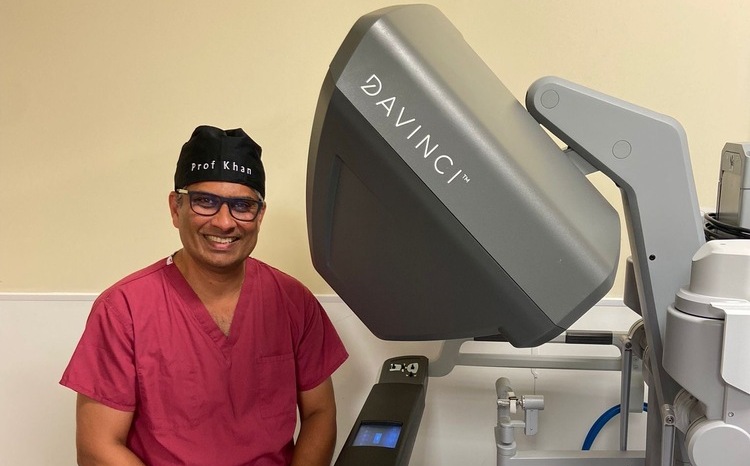Joe’s View: Identity
- 29 March 2017

Not everything is what it seems. Not all penguins are the same.
I have twice come back from holiday and found that my house has been burgled. That’s a real sickener. So when I came home in November and found that the house was cold and we had no hot water, this was a nuisance rather than a disaster.
With British Gas’s cute penguin ads fresh in my mind, I called them. Within 24 hours a friendly man carrying a clipboard and wearing British Gas uniform came and heard about my absence of heating and hot water.
Christmas was coming and I was expecting 21 people for dinner so I was looking to get the problem sorted ASAP. The man in the British Gas overalls looked at my boiler and wrote things on the clipboard. I agreed to have a new boiler fitted and signed on the dotted line. Sorted!
The court battle of the century
Unfortunately not. Two days later, nice men came and fitted my new boiler. They turned it on and – hey presto – hot water and radiators. I signed on the dotted line again and away they went.
About 20 minutes later I went to run a much anticipated bath. No hot water. No heating. Four grand spent. Problem not solved. Turns out the problem was a leak in the heating system. There was absolutely nothing wrong with my boiler.
In subsequent dealings with British Gas, I learned that the man with the clipboard was “not a plumber or heating engineer but a member of the sales team”. I was mis-sold a boiler which I didn’t need.
Given I have a nice new boiler, I made an offer to pay a portion of the four grand British Gas was demanding. But they would not compromise, and are now taking me to court. I will keep you posted on British Gas v McDonald. Not everything is what it seems. Not everyone is who they appear to be.
A gateway to wider connections?
When British Gas take you to court you will get a letter advising you to register with the Ministry of Justice’s Money Claim Online. This service basically digitises the early process of making a small claims court case, but to proceed you must set up a user account and link it to the email address you will be using during the case.
Money Claim Online has chosen to use the Government Gateway offering to establish my online identity. Setting up Government Gateway was straightforward and familiar. My username was was the email address I was choosing to use (entered twice) and I had to set a secure password (entered twice), bearing in mind that half of Newcastle’s password is “Shearer09”.
Then it was just a case of clicking on link in the email they sent me and I was in business. My online identity as a defendant is established.
Not just as a defendant, however – visiting the Government Gateway website I see I can also use my identity on all manner of different services from the Driver and Vehicle Licensing Agency to Her Majesty’s Revenue and Customs; from the Department of Work and Pensions to the Department for Environment, Food and Rural Affairs Farm Surveys and Assessments Service.
There are three ways to register for a Government Gateway ID – firstly as an individual, secondly as an organisation and thirdly as an “agent” who submits information on behalf of other individuals: for example, my accountant who might submit my tax return to HMRC on my behalf.
Interestingly NHS Total Rewards Statement is the only service with NHS in its title which has registered. I can’t use this Government Gateway ID to interact with the NHS proper.
Come together… right now
The process of setting up this ID was entirely painless (imminent court case apart) and appears to have delivered an elegant and usable online identity scheme, one which includes the option to delegate dealing with the system to an “agent” of my choice.
Now, the digitisation of any industry necessitates the opening of a digital channel of communication with the customer, and healthcare is no different. To do that we are going to have to have a system for identifying people online.
Government Gateway appears to have a functioning system of online identification, while the NHS has made a system that provides everyone with a unique identifier in the shape of their NHS number.
Is it not possible for the NHS and Government Gateway to get together and solve the NHS online identity problem once rather than twice?
Once the citizen, their NHS number and their email address can be connected we can begin communicating with them online – give them a username, a password and an account with the NHS.
Overcoming the worries
As I write, people are worrying about data sharing all over the country. Whether it’s concern about TPP’s sharing model or about whether NHS Digital is oversharing with the home office to catch illegal immigrants, the trust of the public is at risk of being seriously undermined by an attitude which boils down to: “It’s too complicated for you to understand so we will decide for you.” No other industry has taken this view.
The secret of consent is to get consent. The first step to getting consent is getting a system to manage identity. Do we have to build a new NHS weapons grade ID system at great cost or could we build on something that’s already there?
They tell me that in Scandinavia your health ID can be your banking ID. Piggyback on an existing system: why not? Well not everyone has a banking ID, I hear you say. Not a problem if you are determined. In Canada they decided to use the driving licence system as the ID system. What about those who can’t drive – blind people, for instance? Simple: rather than build an expensive new ID system they simply issued licences to non-drivers. Naturally those licences do not allow their holders to get behind the wheel, but they do allow the bearer to identify themselves.
How many identity systems do we need?






4 Comments
what about my windows ID or apple ID, Ade?
Sweden has a rather different view of national identity and privacy than we do. I think we need a federated system, but am not at the moment sold on the gov.id verify as its a little bit cumbersome, and costs money we don’t need to pay, I think.
Hi Joe, I think the identification system you are referring to is GOV.UK Verify. I believe that this is being investigated for adaptation in some data sharing projects in the UK (I know of at least one). I think that one of the issues is that for the current eligible Government services you have to be 18 or over to use the service which isn’t the case for healthcare. It would certainly make good sense to have some national ID infrastructure that could just be ‘plugged in’. In Sweden it’s the tax office that keeps everyone’s identity and provides the equivalent to the Patient Demographic Service using the National Identity Number to access. Good luck with the court case!
I have witnessed the very same happen in the NHS. The equipment doesn’t work, the IT company comes in and sells £6000 worth of new IT equipment when it was a simple XP driver issue!
A national identity project is already happening but it is a typically slow and long-running NHS IT project.
Perhaps what is more frustrating is that whilst there is no doubt a national ID service would be valuable we have failed to capitalise on what has been available since April 2016.
Since the introduction of Patient Online GPs have had to introduce local identity processes and are already giving out usernames and passwords.
Given that 2 of the main GP system suppliers have most of the market it would be a small step to start using this identity for other services, such as API access.
Whilst it doesn’t address all use cases and may not be the most technically exciting approach it does offer an immediate and relatively low-cost solution that could deliver value almost immediately, especially in the local context.
Comments are closed.